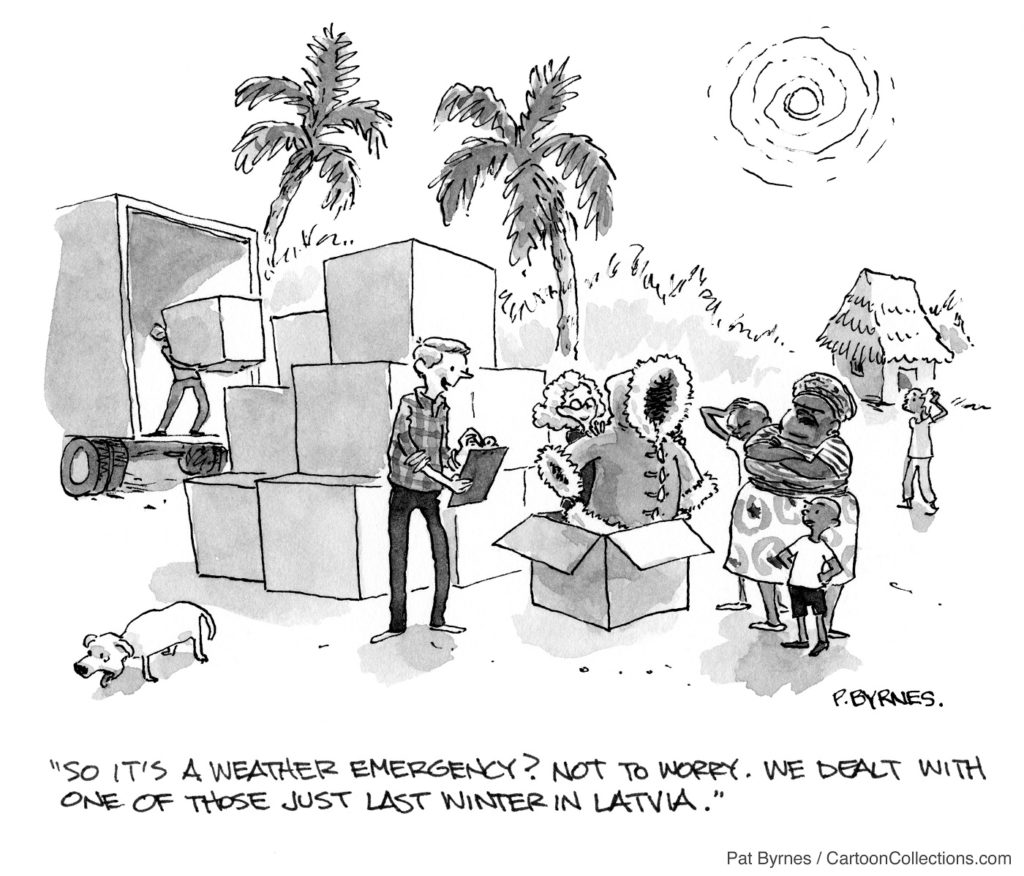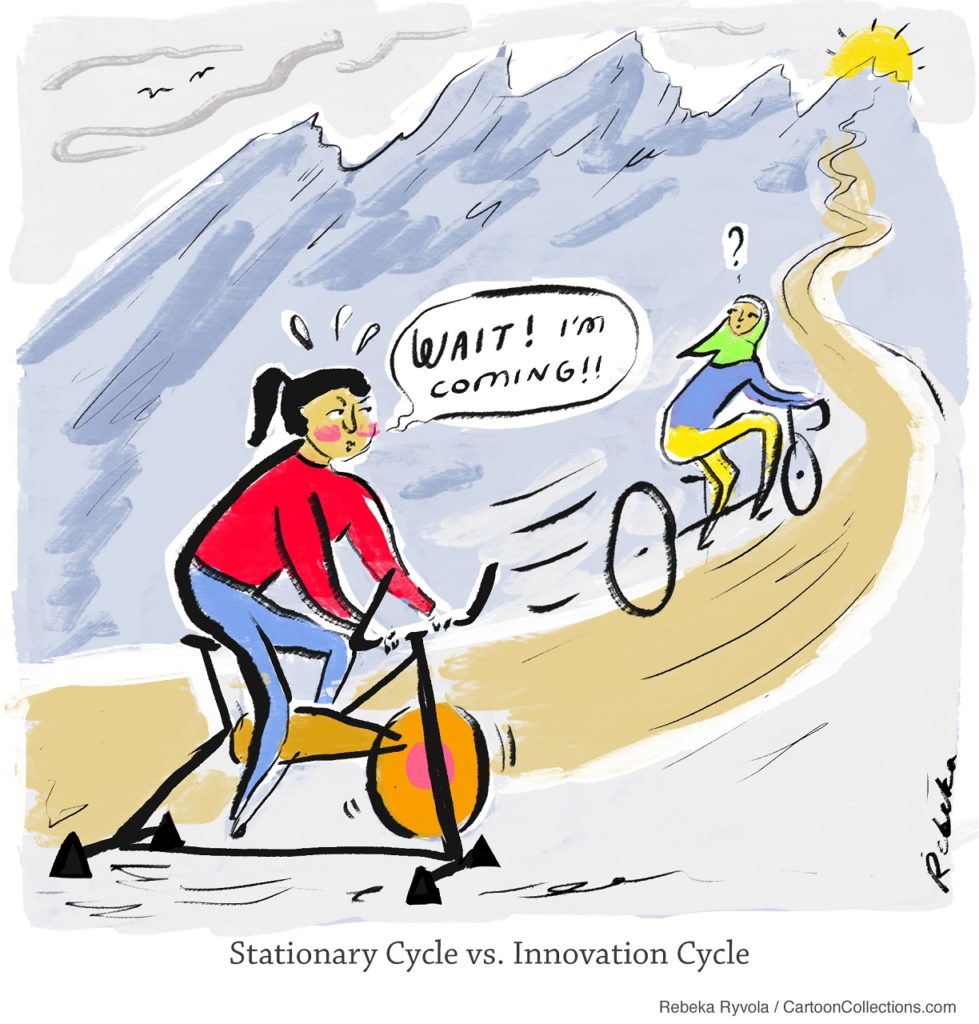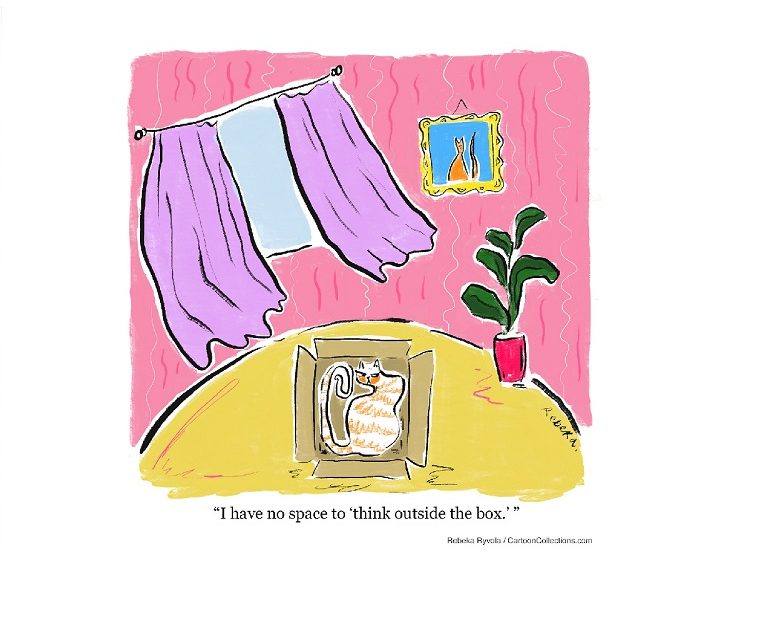The goal is to build skills in innovation methodologies, broaden horizons through insights from internal and external experts, and trigger discussions that accelerate connections and networks with fellow innovators across the organization.
Today, innovation at the ICRC includes a growing community of collaborators and an expanding portfolio of initiatives across delegations and departments that are pushing the boundaries of how we operate – from Gaza to Goma, from Water & Habitat to Detention – and many more!
The first InspiRED Days was held in November 2019 with staff from around the world meeting in Geneva, Switzerland for 3 action-filled days. Yet with today’s travel restrictions, adapting to a virtual webinar was the next best thing.
“We truly miss having the personal connection that in-person workshops provide,” explains Nan Buzard, ICRC’s Head of Innovation, “but seeing everyone’s keen engagement on screen can be very powerful, especially when the content is stimulating.”
And so it was, in a span of only 5.5 hours spread over three days in July, that InspiRED Days 2.0 connected 45 participants from 25 delegations and 23 units to the Innovation Facilitation Team, one Futures and Foresights expert and presenters from UN OCHA and the Red Cross Red Crescent Climate Center.
The Sessions that Inspire
As an increasingly popular methodology, Futures & Foresight is about moving away from reactive planning towards active consideration of future and systemic impacts of change. It is a tool to embed anticipatory thinking into our work and to navigate uncertainty by looking at external trends, emerging issues, potential and preferred scenarios, and strategy requirements.
The presentation was given by the ICRC’s Futures & Foresight consultant and former IFRC Advisor, Aarathi Krishnan, who demonstrated how to explore some of the main uncertainties facing the world that are expected to impact ICRC operations. She guided the audience through visualization methods of how the ICRC’s work might change by 2030 and how our fears, hopes and visions of a possible future can help shape strategic thinking.
A special session offered participants a chance to explore the evolution of innovation in development and humanitarian sectors over the last decade.
Presented by Stuart Campo from UN OCHA’s Center for Humanitarian Data and previously UNICEF Innovation, this session explored the good (and bad) practices in innovation, tracing back from the response to the Ebola outbreak in 2014 to the COVID-19 pandemic today.

Associate Director for Research & Innovation at the Red Cross / Red Crescent Climate Center, Pablo Suarez, provided an enjoyable session that examined unconventional approaches to unusual contexts. Working with cartoonists, the participants observed how humor enables breakthroughs in how we collectively embark on learning and dialogue.
“Laughter can be the shortest distance between ideas and people,” says Suarez. “By enabling people to feel comfortable, you can foster creativity and openness, which can ultimately lead to good solutions to difficult problems.”

Tools for Innovating
Naturally, an ICRC innovation workshop would not be complete without providing some design tools. These were showcased by Innovation Facilitation Team’s Portfolio Manager, Mima Stojanovic. Her dedicated session on the Innovation Cycle outlined the stages of how a new idea can take shape.
“What we aim to do for everyone at the ICRC is walk them through the innovation process,” explains Stojanovic. “We want staff to have the skills to develop their ideas from concept to reality and part of that comes from ensuring access to the right tools, information and support.”
The highlight of the session: five internal staff who delivered three-minute Turbo Talks on their own innovations. From Chatbots, to thermal imaging, to virtual environments, these presentations showed the practical application of the Innovation Cycle in real-world ICRC environments and underscored that innovation is happening everywhere across the organization in many different forms.

Participants offered positive feedback and great ideas for the next iteration of InspiRED Days, from good advice – “It would be great to have a 30-min one-on-one coaching session on how to think innovatively in my work” – to appreciation – “Great to take a step back and to laugh about some of the issues we face. I hope this will lead to continued simplification!” The Innovation Facilitation Team would like to thank everyone and looks forward to continued innovation across the ICRC.

